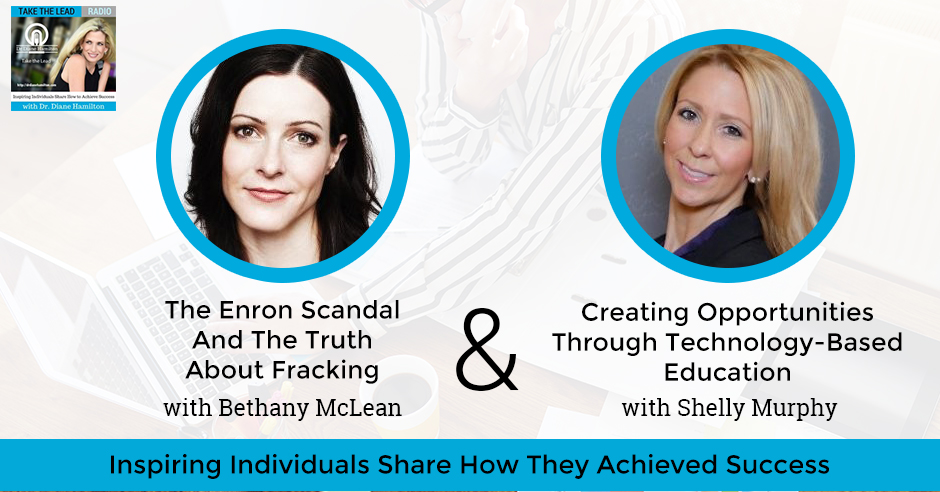
We have Bethany McLean and Shelly Murphy here. Bethany’s a New York Times bestselling author of the greatest book about Enron that they made into a movie and I’m sure you’ve read it. She’s also a contributing editor at Vanity Fair and a columnist at Yahoo Finance and CNBC. She has a new book she’s going to talk about. Shelly Murphy is the CEO of Woz U Foundation and the Cofounder of DesTechAZ. She’s working with Steve Wozniak on Woz U Foundation and it’s really some interesting stuff that they’re doing with education.
Listen to the podcast here
The Enron Scandal And The Truth About Fracking with Bethany McLean
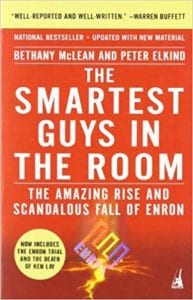
I am here with Bethany McLean, who is a contributing editor at Vanity Fair. She’s also a columnist at Yahoo Finance and a contributor to CNBC. Her books are The Smartest Guys in the Room: The Amazing Rise and Scandalous Fall of Enron and All the Devils Are Here: The Hidden History of the Financial Crisis. She’s written many books as well, Shaky Ground: The Strange Saga of the US Mortgage Giants and Saudi America: The Truth About Fracking and How It’s Changing the World. It’s so nice to have you here, Bethany.
It’s so great to be here. Thank you for having me.
I can’t tell you how many times I’ve had my students watch the movie about your book. Enron: The Smartest Guys in the Room was the name of the movie, but it’s based on your book, right?
Yes, it is. Alex Gibney, who is now a well-known filmmaker, did the movie in 2005.
You were in it. I saw you.
I was in it. I had a different movie.
It was such an interesting explanation of what happened. I can’t even imagine what it would take to write that book, first of all. That’s a lot of research and that’s complicated. You don’t write about very easy things.
I remember a friend telling me I was green by the time I finished that book from lack of sunlight and being hunched over a computer for a year and a half.
I can’t imagine the research that would go into it. We talk about the Enron thing in a lot of my courses because I teach so many ethics-based courses and what a topic to use as an example. I remember teaching it in one of my technology schools. A kid found a site that showed that some Ken Lay Is Still Alive site, like Elvis Is Alive site. There are all these little rumors that he didn’t die. I don’t know if you’ve seen those, but I thought that was entertaining.
I have. It’s a marker of what a cultural statement Enron became that are these sites. It was one of those stories that jumped out of the pages of the business world and became part of our larger cultural consciousness. All these years later, it’s still a name that people know, even kids who weren’t in the business world at that time. There are a lot of interesting reasons why that’s the case. The Ken Lay stories are just a part of that.
Did you interview him or Jeff or any of those people? How did you get the background for this book?
I spent a lot of time with a lot of people who had worked at Enron. The book draws heavily on a lot of interviews that my co-author and I did. It also draws heavily on an amazing amount of documentary evidence about Enron, some public and some not public. Public documents from the bankruptcy examiners reports on Enron detailing all the ways in which they abused financial accounting rules. In order to manipulate the appearance of economic reality and reports from Congress detailing the same. Then a lot of nonpublic material and lawsuits. A lot of public materials given the Justice Department’s prosecution of many of the people involved in Enron. I always think business stories in the end are stories about people. That’s what makes them so fascinating. I have a ton of documentary evidence.
Whatever happened to the whistle-blowers? How did it impact her? Do you know?
Sherron Watkins was the whistle-blower in that case and she’s gone on to make a career out of speaking about how companies can avoid becoming the next Enron. I haven’t touched base with her in a number of years, but she was doing decently well.
[bctt tweet=”Business stories, in the end, are stories about people.” username=””]It’s a fascinating look at the control, they had of a lot of the stuff I wasn’t even aware of. You hear some of it and you know some of it, but then you go into such depths and it’s fascinating. You touch on, as I said, some tough topics. I used to be in mortgage lending and you talked about financial issues and mortgage giants and different things in your work. What draws you to a topic? What makes you want to write a book about it?
That’s such a good question. It usually has to be a combination of a character. I find compelling a character or characters who strikes me as bringing to life that old adage, “Truth is stranger than fiction over and over again,” and it is so true. If you have these business stories with these characters, you literally couldn’t make them up if you had sat down at your computer and try to invent the craziest character. I’m always drawn to that aspect of the story. I’m also drawn to there being something that doesn’t make sense. Either something that was wrong that people didn’t see going wrong. Something in advance that looks like it might go wrong or things don’t quite add up and the surface is not quite what lies underneath. That’s the best way of saying where there’s a discrepancy between the surface and the subterranean. You can pull the subterranean out of the dark and shine a light on it.
Sometimes it’s obvious that some things seem too good to be true like Bernie Madoff.
It’s so funny that you said that. After I got immersed in Enron way back when, I thought, “I’ve learned this amazing lesson. It seems too good to be true.” I realized that was a cliché. I’ve come to believe that is the key. That is the story that we will never learn and that keeps playing out again and again in these stories of business going wrong, which is that if it seems too good to be true. Think about the financial crisis, which was the notion that mortgages made to people who couldn’t pay them back could somehow be turned into triple A-rated securities. Meaning, they were supposedly bulletproof and completely safe. That’s it over and over again and we, humans, never seem to learn our lesson because we always want to believe.
I worked in Subprime. I started in regular loans and they found me. They said, “Do you want to come work in Subprime?” I worked for a while doing that. I started looking at these loans, how much and you want to get 100% and something. They want a house that was a million-dollar house and they made $20,000 a year. It was crazy. They were doing these stated loans. Stated meaning you could say how much you make. The company I worked for would turn those loans down, but I saw my competitors and what they were giving. I thought, “How does this make sense to anybody?”
I know at the time they would say the reasoning was that these people had poor credit. They would eventually fix their credit, so you’d get a two-year Band-Aid loan even at a higher rate. You don’t have to worry about it in two years when it comes to this really high rate because you could refinance them. Everything’s going to go up. Your house is going to be worth so much and it won’t be a problem, but then it was a problem because there were so many loans and there were so many people trying to refinance and they couldn’t get their houses to value on the appraisals. It was a real big issue and so many people lost their homes. Should everybody just close their eyes to this? That this is not going to be a problem. What do you think was behind that?
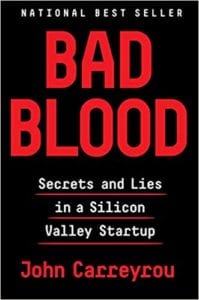
One of the things that’s fascinating to me is that these things seem so obvious in retrospect. The Enron story seems obvious in retrospect. Nobody understood how this company made money. There were disclosures in their financial statements that should have been giant red alarm signs to anyone who was looking. Everyone chose to believe. The same thing is true of the financial crisis. It seemed so obvious in retrospect. The same is true of the Theranos story. I don’t know if you’ve paid attention to that or read John Carreyrou’s great book, Bad Blood, but it seems so obvious in retrospect. At the time people believed. I feel like that cycle plays out over and over again. I guess I’d add one other note on that, which is that people often say to me, “If this isn’t making money, why is Wall Street financing it?” I say, “Because Wall Street has its own reasons for doing things often.” They figured out ways to extract these and enrich themselves or perhaps count on the government bailout. In a way that doesn’t mean that the thing that they’re financing or supporting is actually good for the overall economy.
What amazes me, and I don’t know enough about Theranos other than that, was where they take a small amount of blood at pharmacies, instead make you go get the whole blood work. It turned out it wasn’t doing what they said they would do. It was a woman behind that one and she was the CEO. It’s interesting how these CEOs, these founders, these Ken Lays, whoever is at the helm, how do they sleep?
It’s another good question but what I’ve come to believe is that these stories are never as simple or rarely as simple as someone sitting in a dark room plotting and wrestling with their own conscience. So much of this is self-delusion and rationalization. This idea that I’m going for this bigger thing that is going to save the world. If I lie and cheat along the way, the end justifies the means. Even a deeper degree of delusion that people literally don’t admit to themselves that what they’re doing is wrong until it’s too late. It plays out again and again. It sounds hard to believe. I used to think that the world was as simple as bad people knowingly doing bad things. I remember having this conversation with a close friend of mine when I was working on my Enron book. I’m saying, “I’m struggling with this because Jeff Skilling, who is the company’s former CEO, who is just getting out of jail now.” He believed and this friend looked at me and said, “Bethany, the worst crimes in human history have been committed by people who believed.”
Who do you think came off worse when you were researching it? Ken Lay or Jeff Skilling?
I’ve always had more sympathy for Jeff Skilling than for Ken Lay and the reason why Skilling was a manipulator and he probably deserves the blame for what went wrong at Enron. He was in there and getting his hands dirty. Whereas Ken Lay for many years stopped paying attention to the operations of the business. He didn’t understand it but still took somewhere around $200 or $300 million in compensation over the final years of Enron’s existence. I have a real fundamental problem with the people who are hands off and don’t pay attention to something but nonetheless take the money. Then when it all goes down in flames, “That’s not my fault.” I’d almost prefer the character who is in there doing bad deeds because at least there’s a degree of ownership there.
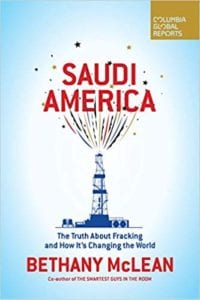
The thing that I try to teach my students a lot about that Enron cases is that it teaches you to not invest 100% of your 401(k) in your company. If you lose your job, you lose your 401(k). It’s all gone. A lot of people could have learned a lot of things, not to be unethical but the ethical people could learn some other things from that. You taught some great lessons in your books. I want to talk about Saudi America: The Truth About Fracking and How It’s Changing The World. That’s also not the easiest topic to go into. Some people know that fracking is changing the world. Can you explain what fracking is one more time in case anybody doesn’t know?
About a decade ago, Congress was holding hearings on our impending shortages of natural gas and oil. People believe in this concept known as peak oil, which is that worldwide oil production could only decline. People thought the United States was facing a shortage of natural gas. Then along came basically this not so new. It had been around for a long, long time but nobody had figured out the recipe to make it work and get lots of oil and gas out of the ground. Instead of drilling a vertical well, you essentially drill a well horizontally and you combine a technique known as hydraulic fracturing where you fracture all the rocks and you get the oil and gas molecule to release. You can’t overstate what a dramatic change that has caused. There was news headline that the United States is now the biggest producer of crude oil ahead of Russia and Saudi Arabia for the first time since the 1970s. We have an immense supply of cheap natural gas that even skeptics think will last for a hundred years. I was drawn to this idea of what is this industry. We’re all myopically focused on Silicon Valley and the latest app to do your laundry or dry cleaning. What’s happening in places like the Bakken in North Dakota and the Permian Region in Texas are going to have a greater impact on than the latest laundry app.
There’s so much focus on how we get along with certain countries or because we’re nice because of this reason or that reason. We need this or that, but now that we don’t need this or that so much, what has that done?
[bctt tweet=”Sometimes it’s the obvious things that we miss because they just seem too good to be true.” username=””]I actually think that’s a bit of a myth and it was a fascinating process because the proponents of fracking talked about this notion of American energy independence. Which every president since the 1970s when these fears of oil shortages started, has talked about this concept. They suggested that if we don’t need Middle Eastern oil, then we don’t need them. We can look away and leave them to their problems. The problem is in a global market, that’s just not true. For one thing, the price of a barrel of oil is set on the global market. Events in countries like Libya and Nigeria are going to shape what American consumers pay at the pump. For another reason, we import enormous amounts of goods. We need to make our economy work from Asia and Asia is dependent on Middle Eastern oil. The idea that we can look away because maybe we don’t need their oil is nonsensical in this economy. You can see it now with what’s happening in the news with the killing of this journalist at the Turkish embassy. CEOs around the country and around the globe are pulling out of a big conference in Saudi Arabia because Saudi Arabia has admitted they are to blame for it. Although there are still complications to that story, when you see the worries about what this might do to the oil market, you realize what a myth this notion of American energy independence is because Saudi Arabia still has so much control of the oil market.
I’m curious what you think is going to happen that now that they’re trying to develop all these electric cars. We’re getting on a different focus than we had in the past. How is that going to impact everything?
One of the points of my book that I was also surprised to hear is I’m talking with all these smart investors. There are people who are no longer investing in oil and gas but rather are putting their money in renewables because that’s where the future is. They’re not doing it because they’re environmentalist. They’re doing it because they’re financing or is trying to make money. They think the end of oil and gas is close enough that it doesn’t make sense to invest in these projects anymore. Part of the point of my book is I get a little worried for us because we’re beating our chests about American energy independence and all the oil and natural gas we’re producing. We are falling further behind in the race to be a leader in renewables. I worry that we risk being a leader in the world as it was and relinquishing our leadership in the world as it’s going to be. To be clear, no one knows when the dawn of the age of renewables is coming. It could be a long way out, it could be very soon, but people are actively trying to figure that out. Once they do, oil and gas are done and probably gas on a much later schedule than oil, but it’s coming.
It’s interesting to see all the things that are coming and you deal with so many different levels of things that impact the globe. You’re also an editor at Vanity Fair. What kind of articles do you deal with there?
It’s interesting because Vanity Fair is more of a generalist magazine, not a business magazine. I have done everything from some pretty tough business stories to some stories that are much lighter. One of my last big stories for the magazine, which was a cover story on JLo and A-Rod on their new relationship.
It’s completely different.
In a way, it’s completely different but it is also storytelling. It’s figuring out what makes two very fascinating people click. What their stories are and what that narrative is. In some ways, it’s very different and in some ways, it’s not.
It’s not like everything is all the crisis of situations in the world. It’s not like Mike Wallace in 60 Minutes.
I’m always interested in learning about something that I don’t know anything about. It may be something that’s very positive and somewhat lighter. It may be something that’s very heavy and dark, but if I don’t know it and I don’t understand it, then I’m always interested in learning about it.

My book comes out on curiosity and I’m really excited because I created a curiosity assessment to go with it to help organizations. There are four things that I think hold people back from developing their curiosity and it measures those things. I meet people and I’m always curious why they’re not more curious. You are very curious and did you get that as a family? Did they instill that in you? Is it something that you got on your own? I’m curious what you think is what developed it in you?
Doing what I do has developed it. In other words, when you choose a career, you are choosing how you’re going to shape yourself. There’s this idea that you are and then you choose your career and that reflects who you are. I don’t think that’s true. When I look back on my life, and I’d be curious to know if the same is true of you, what I’ve chosen to do has shaped me in many ways. I don’t think I was as curious coming out of school. I was intellectually curious and all of that, but I don’t think I was as deeply interested in the world as I am now. Twenty plus years of working as a journalist has made me much more engaged and curious than I was. Part of that is to figure things out. I can come up with these ideas that I don’t understand, and I have the forum to work on them and think about them. It goes back to this notion that you very much shape yourself by how and where you spend your time and who you’re spending time with.
The four factors I mentioned were fear, assumptions, technology and environment. You’re talking a lot about environmental factors and a lot of what I’m trying to do is improve curiosity to get people engaged. You talked about how it increased your engagement. You’re exactly what my research has proven. I could see why Stephanie Arnold had suggested you be on the show. She was a wonderful guest on my show. She described you as fabulous, smart, successful, beautiful, talented and a hardcore journalist. You do a lot of very fascinating work. In addition to Vanity Fair, you’re a columnist at Yahoo Finance and a contributor to CNBC. You’ve got all this background. What did you study?
My degree was strange. I would sign up a split personality, but I was a Math and an English major as an undergraduate. My first job out of college was working on Wall Street as an analyst at one of the big banks. It was partly because I didn’t know what I wanted to do. The big banks came recruiting at my college and a female math major seemed like a natural fit for them. That was my first job. I became a journalist later without ever having written for my high school paper and my college paper. I wasn’t brave enough and I decided in my twenties when I was about to go back to business school that if I did go to business school, that this would be it. I have loans I’d have to pay back and that would be my life. If I ever wanted to take a flyer and try this thing that I’d always thought I wanted to do but had never been brave enough to do, that I had to do it now. This was my chance and so I did. Here I am twenty plus years later.
It was the right move. You’re a New York Times bestselling author. That’s a pretty heavy-duty thing to achieve. Everything that I’ve read that you’ve done has been amazing. I could see why Stephanie thought you’d be a perfect fit for the show and you are. I enjoyed our conversation and a lot of people want to know how can they get your books and find out more about you. Do you have some links you could share?
[bctt tweet=”The worst crimes in human history have been committed by people who believed.” username=””]All of my books are available on Amazon and you can always come. I’m somewhat active on Twitter. Not as good as I should be, but I’m @BethanyMac12. I’m easy to find on LinkedIn. I’m fairly easy to find.
You’re going to be promoting the Saudi America book. What’s the next thing that you’re going to work on after this? Do you have another book in mind?
I think so but I’m figuring that out right now. Every time I finished a book I say, “This is it. I’m never doing this again.” It’s just too painful and too hard. I’m never doing it again.
Imagine the amount of research you must do for your books.
You too and it’s the writing of it that is always incredibly difficult as well. We’ll see.
I enjoyed having you on the show, Bethany. Thank you again to Stephanie and this has been fascinating. Thank you.
Thank you so much.
Creating Opportunities Through Technology-Based Education with Shelly Murphy
I am here with Shelly Murphy, who is the CEO for Woz U Foundation and the Cofounder of DesTechAZ. She comes from higher education where she’s developed Arizona Education and technology-based companies. It’s nice to have you here, Shelly. Welcome.
Thank you, Diane. I’m excited to speak with you.
I’ve been looking forward to it.
Thank you for coming to DesTech.
Thank you for having me. It was an amazing group of people. I had so much fun. I ran into more people I knew there. Some of them I hadn’t seen in how many years. It was a great assortment. You had Goodwill, you had governors. I’m walking around going, “This is such a great group.” I went in 2017 too. I went with Jeff Hayzlett who interviewed Steve Wozniak. It was fun to see Steve. I got to meet Steve Wozniak. He was there with Pitbull. I’ll let you tell what it was but tell a little bit about DesTechAZ and what they do.
It’s so funny because what you just described is probably the biggest takeaway for us having the DesTechAZ Event. Of all the things that we could take away, the goal is to be able to bring together all of our leaders, our innovators, our influencers in the State of Arizona together in one room for one evening. It’s not about hearing all of the things that have come into Arizona, but rather than celebrating all that we’ve accomplished as a state and together. When you name folks like Goodwill and the governor and some of the top CEOs that were there, even a lot of our political leadership that was there, it’s what DesTech is about. It’s about bringing together all of these incredible community pillars, these influencers and these leaders in one room together for one night. In one sandbox so to speak. Everybody’s there with a shared mission and goal. That’s what DesTech is about for one evening out of the whole year.
You make announcements at these events too. In 2017, Woz U was announced. In 2018, Governor Ducey had an announcement. Both of those announcements have been very big. You had other things that you announced at these events. Did you have any insight or anything you want to add to Governor Ducey’s announcement? If you could share that? I’d love to hear what you think.
I heard the details at the same moment that everybody did. I knew that there was a big announcement coming and I do the high-level aspects of it. I got all of the exciting news at the same time with everybody because he had signed that Executive Order. With DesTech, we always build up to some big announcements. He had that, which is significant for the state, right along with the Sandbox Bill that he’s put in place earlier in the year. Then we had Pitbull make his announcement. That was a big deal for us about bringing his charter schools plan to Arizona.
[bctt tweet=”You very much shape yourself by how, why, and where you spend your time and who you’re spending it with.” username=””]Ducey’s announcement was about technology with ASU. What are they going to do specifically? Do you know?
It’s testing and building the platform for the companies that bring in autonomous vehicles. I apologize because I don’t know all the details.
They’re going to make Arizona on the forefront.
The partnership with ASU is amazing because they’re a leader in innovation for many years. That partnership alone is pretty amazing and I’m excited and even Intel being involved with the program.
I went to ASU. I was very impressed with the number of people and companies that were associated with it. Did you know more about Pitbull’s announcement before that or is that another a surprise?
I did because we had been working with him and his team for a little bit. Really taking an interest in their charter school model and what he has done in general. The more that we learned about SLAM and how you unique it was, the level of quality was amazing. We began to talk to them. They had an interest in Arizona. We only helped encourage that interest further but we did know that that announcement was coming. He was so gracious enough to announce that at DesTech. We felt honored to have him there.
He was very popular. They make these great entrances. I love how he comes in on his Segway. It’s so much more fun.
The funny thing is while it’s safe on that Segway, he can get through that aisle pretty fast. We had Pitbull cruising down that aisle. He had gotten intercepted many times, but he made it to the stage.
You had some other big names like Vitalik?
We had Vitalik Buterin. He is the Founder of Ethereum. Another huge representation to Arizona and where we’re going as a state because he flew in from Moscow to be onstage with Steve and to share his vision. To bring him into Arizona was significant, it puts us on the map. To say that we’re bringing in top talents and big names, who had taken an interest in us as a state. That was Vitalik. He is 24 years old. He is the Founder of Ethereum, Cofounder of Bitcoin. He is an absolutely amazing individual and off the charts when it comes to technology and blockchain and all of that.
You have a bright group, Vlad Martynov. A lot of the new technologies that are out there had some Bitcoin, blockchain experts on the show. No matter how many times they explain, it gets even more complicated when they find new uses for it. I’m always appreciative of people who give their different insights. It was a great event and it’s interesting to see how Arizona is pursuing more technology-based education. I told you before we get on the air and I had a John Couch on my show who was with Apple. He’s talking about rewiring education is how he puts it. Do you think that that’s what Woz U is going to do? Before you answer that, what led to the Woz U Foundation and what’s your mission?

Steve and I had lots of conversations about his passion and the things that were important to him. Woz U is a big part of his legacy and also the kids. He believes it’s important that kids are given resources and opportunities to be creative and innovative. If you give it to them and you just let them go, you never know what they’re going to build or going to develop or what will happen. He’s a big fan of Maker Faire, which are a big deal. I sat down with him and talked. One of the things he said is that he wants to make sure that kids in low income, inner city communities, they get resources and that they have the opportunity to be innovative and create. That’s our mission is to provide technology and resources to as many kids as we possibly can across the world. Through the foundation, we’ll do that with our partners. To be quite honest, we’re still building that model out. We’re still looking at how we can be most impacted to kids. We don’t want to reinvent the wheel. If there are already resources being provided in one area, how can we help in another? It will be all technology around a lot of STEM.
I talked to Mike Couch about this. I can’t remember if it was on the air off there but in terms of what we’re doing for the K through 12 before they even get into the higher ed. I serve on the Board of Advisors for LeaderKid Academy, which deals with emotional intelligence and some of that stuff. There’s STEM, there are soft skills, there are so much that could be brought in before they even get to higher education. Does Woz U deal with K through 12 as well as higher ed? Is it based on your higher ed platform?
We do have a K through 12. Karen spoke at the conference and she oversees our K through 12. She has done an amazing job with our K through 12 area. We believe that that’s really where it starts. It starts with educating the young generation so that as a country, as a state, we become competitive. We realize that it really does start in the K through 12 system. We’d have a whole K through 12 and she’s phenomenal. If you ever have an interest, I would highly recommend visiting with her because she’s done incredible things. At DesTech, you saw Gary Payton, Karlos Dansby. Those are all individuals that she has worked with over the last few months, over the last year to cultivate relationships that become highly impactful to our K through 12 markets in technology. They’re also incredible partners because we share the same vision within K through 12. Karen has done a fabulous job with all of that.
[bctt tweet=”To be a leader means to be part of a team.” username=””]It’s interesting that you have all levels of education. I was the MBA program chair at the Forbes School of Business and I continue to work there. I also continued to work at Grand Canyon University. I know you have a lot of people that came from Grand Canyon that has helped you with Woz U. Michael Clifford, I think had something to do with that. Brent Richardson, John Crowley, I’ve met all of them and they were a big part of this. This transition was when you began Woz U?
They were 100% a part of it. What they did in Grand Canyon was amazing. It’s become the darling of the state and that’s a huge part of what they did there is build that school. These guys, when it comes to education management and development and innovation, John Crowley and Brent Richardson, I would say are right at the forefront at the top of all of that. Absolutely 100% a part of getting the Woz U pulled together. I’m so fortunate to be a part of it.
That’s an impressive group and you’ve done a lot of work to get this Woz U going. In 2017, Woz got on stage and announced it. It was shortly after that that I went and toured your facilities and talked to John and Brent and Michael. I saw what you guys are doing there. It’s interesting that Woz is so involved. That’s great because you talked about his legacy. We saw that with Steve Forbes, with the Forbes School of Business. He knows Steve got very involved and it’s important. I know Woz does like videos. That he puts into the classrooms and he’s interactive with students. There’s just so much that’s going to change with education, at least I’ve seen. There’s a lot of less focus in some areas on the four-year university and sometimes more on certification programs. The biggest thing we’re going to see with the shakeup with innovation because of artificial intelligence is so many people are going to be displaced. That’s why I did my research on curiosity because a lot of people need to explore areas that they hadn’t normally considered because they’ve gotten off-track of things that may be interested in them. Now, they can have that chance to maybe look into something else. What do you think the impact is going to be with artificial intelligence on jobs and how can something like Woz U help people?
You’re spot on with what you said. I do think we’re going to see less four-year degree programs and more certification-type programs. A couple of reasons, technology is evolving almost daily. For four-year programs, it’s hard. When you are in a four-year program, you’re constantly having to keep up with the changes within the programs and technology. When you go through certification programs, you get a certification. You learn and then you could get your next certification. I do think we’re going to see a big change in that market. Artificial intelligence is going to be interesting because it’s going to allow you to do just as you described. To have access into other environments, other types of industries that you wouldn’t otherwise be familiar with simply by putting on a headset and exploring that environment. It might be intriguing to you. Where before, you would have to maybe do an actual physical internship at the company. Now, you could probably take a tour of any type of industry in ten minutes via artificial intelligence or through virtual reality. We’re still several years away from really seeing how impactful that is going to be. It’s definitely on the forefront. It’s hard to say.
You’re being productive in getting ahead of it.
Absolutely with all that, going back to technology evolving. Everyday there’s some type of new technology that’s testing the waters, which is another huge plus for Arizona. Our governors so innovative. He’s creating opportunities for companies to come in to Arizona to test certain types of software, to test blockchain platforms. We’re right in the middle of a state that’s opening the doors to allow us to be more ahead of the curve and to see things that are out there sooner than most people do. These companies are coming into Arizona. We’re definitely trying to stay ahead of the curve and keep a pulse on what’s going on. It’s going to be a huge part of the future for sure. Just like autonomous vehicles.
I’m excited to see what they do with that and the new initiative too. You made some good points. Younger generations have a different view of education in the certificate programs. More bite-sized pieces of content sometimes appeal to them. I could see that what you guys are trying to do is really important. We’ve done that at some of the universities for which I teach because I still teach for six, seven different universities on and off here and there. I’ve worked for everything for profit to nonprofit to private for all these different types of online education. It’s interesting to see the nonprofit versus profit discussion now. What do you think how that’s going and some of them aren’t going to become nonprofits now that used to be for profit? Do you see more of that occurring?
Legislation, a lot is changing and a lot of it is looking at for profit versus profit gainful employment, job placement rates, program and performances. Depending on the legislation, if things change that become more favorable for profits and I don’t think they’ll be such a sense of wanting to become a nonprofit because a lot of the barriers that cause for profits to have to struggle a little bit, if legislation changes, those things will loosen up a bit, which will allow them to hopefully perform better. A lot of that was gainful employment, for example. The Department of Ed has got a lot of focus on that. If that legislation comes through, that’s a game-changer for pro-profit schools. I don’t know that I have an opinion one way or the other, other than I’m sitting back and waiting to see what type of federal legislation comes through. We’ve got a Department of Ed administrative mindset that they want to change. That’s positive but I’m like everybody else. I’m sitting in the background waiting to see how it’s going to go.

It did bring up a good dialogue though. We do want gainful employment, whether you’re for profit or nonprofit. If we can get people to take a look at the schools and make sure that we’re reaching those goals, whether it’s in legislation or not. A lot of it is tying in the curriculum to really useful outcomes. I know when I did the MBA program review, when I was program chair that I looked at a lot of the content. A lot of it needed to be updated and they have been working on those things in terms of incorporating more soft skills. A lot of companies are hiring for their hard skills and their knowledge, but they’re firing because they lack soft skills. The certificate programs are great and we need those things. I also think that a lot can be weaved in to whether it’s a four-year program, a certificate program or whatever to help people get along in the workplace better. I know you’ve been around a lot of great leaders who have unbelievable skills. I’m curious if they’ve given you any advice that has helped you that you’ve learned through your on-the-job experience? What leadership advice has been shared with you?
I’ve been fortunate through my career to be around a lot of really amazing individuals that are all incredible leaders. I’ve been fortunate to take a little bit away from all of them. I would say all of them and consistent with really great leaders and what I’ve learned is to be a leader means that you’re part of a team. No one person is a leader when you have really amazing people around you and you work at the team. You get more done that way and relationships. I’m a firm believer of that. When you talk about soft skills, developing relationships with people, it builds a solid team. I’ve taken away cultivating really important relationships and working together as a team. I know that sounds like what everyone would say. In a team, building is important but it is. When you’re a good leader, you have a great team and you’re a part of that team.
You have quite a team. I’m hoping that everything goes well with your work. Those are two very interesting foundations. Now, are they connected, Woz U and DesTech, in any other way other than you?
Not really. DesTech is not a foundation. It’s an event that we’ve created. Maybe I’m the connecting factor at this point, but we have to grow that into something more. I don’t know what we do or what would that look like next year, but we’re hopeful that people want to get involved with us and grow it. DesTech is not just about Woz U thing, we’re making it an Arizona thing. Let’s build this into the next big thing that continues to bring these leaders together.
It’s a great event and I thoroughly enjoyed it. Have you had more than two? I’ve only been to two, but they’re amazing.
We had a small one at the beginning just to test the waters and see. In 2017, when you were there with us, that was our first real big one. It’s going to be interesting because now we’ve got to figure out how to tap it because how do you get more disruptive than Steve Wozniak and Pitbull in one state together?
[bctt tweet=”When you’re a good leader, you have a great team.” username=””]We’ll have to put some thought into that one, but it was a great event. Thank you again for that and thank you so much for being on the show. I hope that you could share some links for what people can look into to research what you’re doing for Woz U, for DesTech. Anything you’d like to share? Can you please tell my audience?
Especially for Woz U Foundation, we’re looking for partners that will help us with our mission and that’s to create access to technology and resources to kids in low-income inner cities across the road. I’ll still be looking at scholarship programs. We are really looking for partners that want to help with us and work with us at Woz U Foundation. If you want to be involved in DesTech, we’re looking for all our partners there as well.
Do you have a website you’d like to share for either one?
We do have DesTech, which is www.DesTechAZ.com. Then we have www.WozUFoundation.org.
It was so nice having you on the show. Thank you again, Shelly.
Thank you so much to Bethany and Shelly. What a great show. There are so many great guests on this show. Also, I wanted to give you an update on the Curiosity Code Index and Cracking the Curiosity Code book. They can both be found on CuriosityCode.com. You can get the white paper on my site. If you can’t find it, it should be at CuriosityCode.com. You can always contact me through my website. I’m happy to get you that information and it’s such an important assessment for HR professionals, for consultants. Anybody interested in knowing more about it, please contact me through my site, DrDianeHamiltonRadio.com. What a great show and I hope you join us for the next episode of Take The Lead radio.
Important Links:
- Bethany McLean
- The Smartest Guys in the Room: The Amazing Rise and Scandalous Fall of Enron
- All the Devils Are Here: The Hidden History of the Financial Crisis
- Shaky Ground: The Strange Saga of the US Mortgage Giants
- Saudi America: The Truth About Fracking and How It’s Changing the World
- Bad Blood
- Bethany McLean column on Vanity Fair
- JLo and A-Rod – cover story by Bethany McLean
- Stephanie Arnold – previous episode
- Bethany McLean column on Yahoo Finance
- Bethany McLean column on CNBC
- Bethany McLean on Amazon
- @BethanyMac12 on Twitter
- Bethany McLean on LinkedIn
- Woz U Foundation
- DesTechAZ
- SLAM
- Vitalik Buterin
- Vlad Martynov
- LeaderKid Academy
- www.DesTechAZ.com
- www.WozUFoundation.org
- CuriosityCode.com
About Bethany McLean
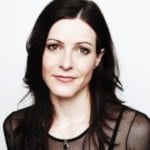
Bethany McLean is a contributing editor at Vanity Fair. She is also a columnist at Yahoo Finance and a contributor to CNBC. Her books are The Smartest Guys in the Room: The Amazing Rise and Scandalous Fall of Enron and All the Devils Are Here: The Hidden History of the Financial Crisis. She lives in Chicago. She has also written two mini books, Shaky Ground: The Strange Saga of the US Mortgage Giants and Saudi America: The Truth About Fracking and How It’s Changing the World.
About Shelly Murphy
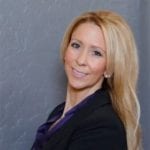 Shelly Murphy is the CEO for Woz-U Foundation and the Co-Founder of DesTechAZ. She comes from higher education where she has developed Arizona education and technology-based companies.
Shelly Murphy is the CEO for Woz-U Foundation and the Co-Founder of DesTechAZ. She comes from higher education where she has developed Arizona education and technology-based companies.